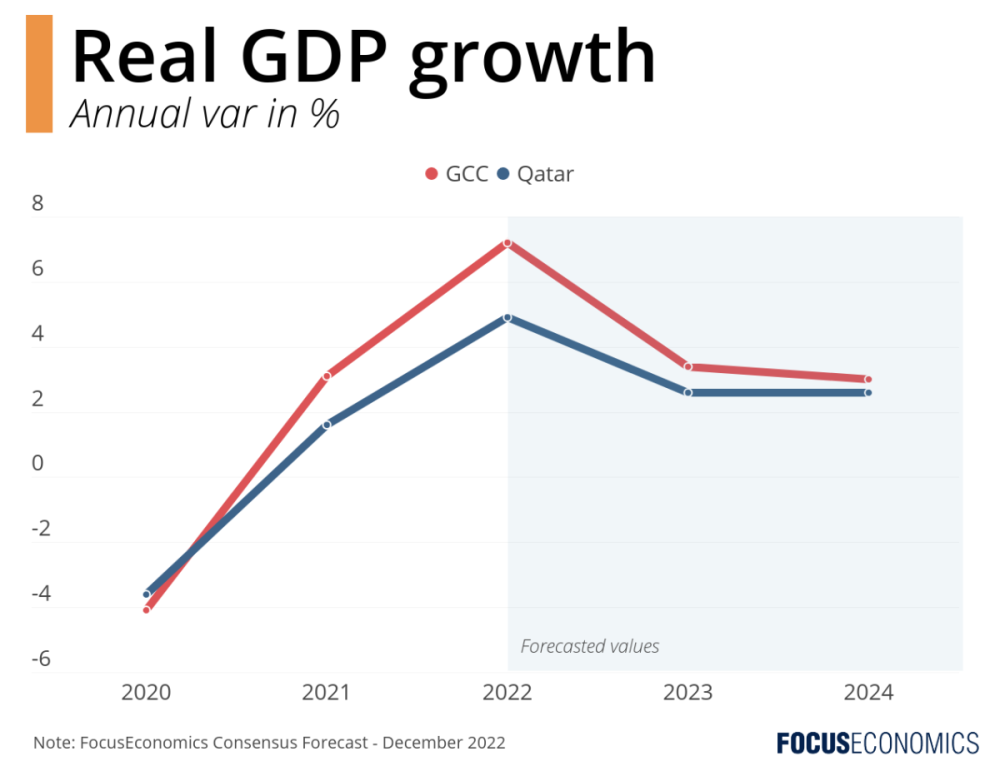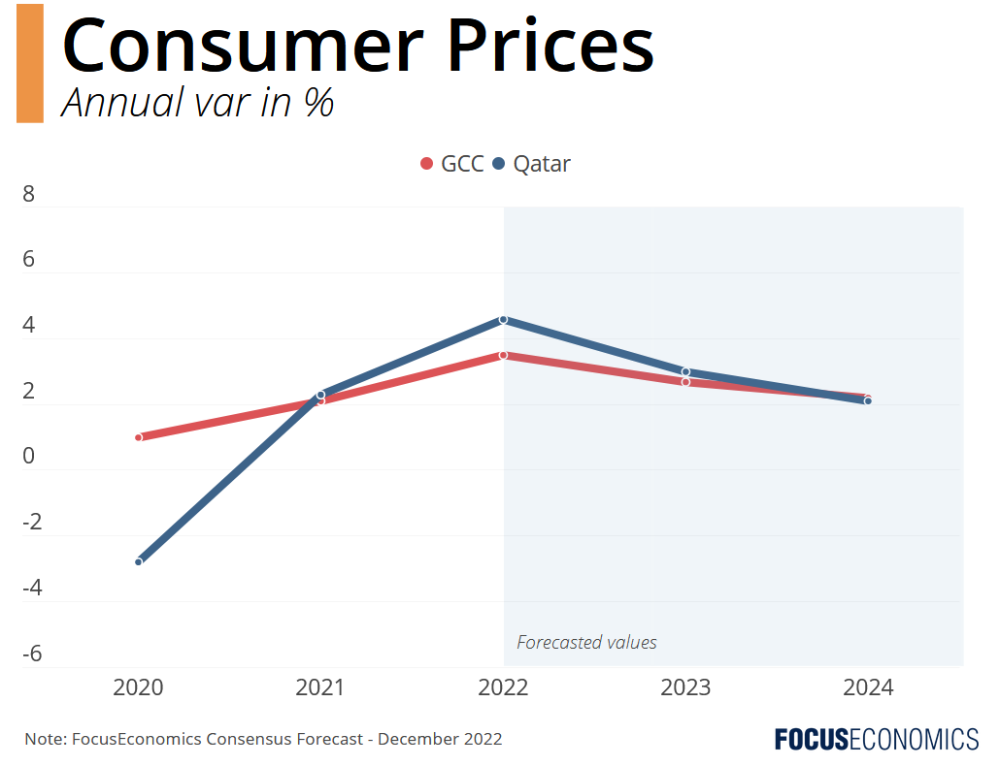Satyendra Pathak
Doha
Qatar’s GDP growth is expected to accelerate this year as non-hydrocarbon sectors such as tourism, transport, and construction benefit from Qatar’s hosting of the World Cup, FocusEconomics has said in a report released on Wednesday.
According to the report entitled ‘Will the World Cup bring home an economic win for Qatar?’, FocusEconomics, a leading provider of consensus economic forecasts, said: “We anticipate an acceleration in GDP growth this year as non-hydrocarbon sectors such as tourism, transport, and construction benefit from Qatar’s hosting of the World Cup, which is expected to bring in about 1.2 million tourists. Economic growth thereafter is likely to be relatively soft through 2025. Government investment, much of which is outside the hydrocarbon sector, will gradually decline, with major infrastructure projects nearing completion.”
“Our panelists expect GDP growth to more than triple this year from 2021’s modest 1.6 percent,” it said.
“In Q422, the hosting of the tournament will have immediate positive effects on Qatar from the perspectives of real GDP growth and the balance of payments via higher consumption, government spending, and services exports. On the other hand, the surge in Qatar’s population during the months of the World Cup tournament will lead to substantial demand-side pressure, which will contribute to above-trend inflation and will require a significant increase in goods imports, including food and beverages, as well as a fall in the volumes of LNG available for export,” the report said.
“The 2022 World Cup is marked by superlatives. It is the first time the global football tournament is takingplace in a Gulf nation. Qatar is the smallest country ever to host the month-long event. This year’s World Cup is also the most expensive, at least 20 times more pricey than past tournaments,” the report said.
“The country has shelled out an estimated $220 billion, roughly 100 percent of GDP, since winning the bid in 2010. These funds were used to construct seven new stadiums, refurbish one older stadium, and create a new metro system linking these venues. Other huge infrastructure investments included upgrading an old airport, building hundreds of hotels, and upgrading significant portions of the country’s roads,” it said.
“Over one million tourists are expected to fill these new structures over the next month, providing a near-term boon to the economy, especially thanks to increased spending on food and hospitality support services. Increased domestic demand will also drive inflation up. Our Consensus Forecast expects inflation to more than double from 2021’s figure an average of 4.6 percent in 2022, well above the GCC average,” the report said.
The report, however, said that several factors limit how much revenue Qatar will reap from the Cup. “FIFA will take home much of the profit generated during the games by selling its own products. Furthermore, host countries must give tax breaks on merchandise, food, and other purchases from FIFA and its partner brands, limiting the boost to government coffers.
“Overall, official estimates are that the World Cup will generate $17 billion for the Qatari economy while it takes place,” it said.
While the soft power gains Qatar can expect from hosting the World Cup are more complex to quantify than the costs, the report said, the Cup may go some way towards strengthening regional ties as neighbors benefit from the Cup.
For instance, it said, the UAE is seeing increased tourism numbers as some fans decide to reside in the country rather than in Qatar and has introduced a multiple-entry visa for those attending the competition. Kuwait and Jordan are also receiving more tourists, and Saudi Arabia expects a spike in pilgrims and related hotel stays.
“Moreover, Qatar is wagering that the Cup will jump-start tourism in the longer term, too. The government is targeting 6 million visitors annually by 2030, up from 2 million in 2019. Finally, at least some of the infrastructure built for the competition—including a metro line in Doha and an airport—will serve a permanent economic purpose, dovetailing with the objectives of encouraging tourism and diversifying the economy,” the report said.



